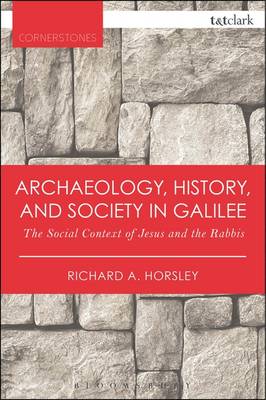T&T Clark Cornerstones
1 total work
In this book Richard A. Horsley constructs bridges of communication and engagement between the fields of archaeology and history with a focus on developing a fuller understanding of Galilee. Horsley contends that neither the material nor the textual remains from Galilee can be adequately understood without consideration of the prevailing patterns of power relations in Galilee, Palestine, and the Roman Empire. He also uses recent work in the wider field of anthropological archaeology to reconfigure and reinterpret key findings of archaeological excavations in Galilee.
Chapter by chapter Horsley constructs a picture of social relations in Galilee that is based upon and helps explain both the artifacts and texts, and that takes fully into consideration the changing historical circumstances between the time of Jesus and the rabbis. Horsley considers various textual and archaeological evidence and interpretations, writes at length on the villages of Upper Galilee, and looks at the different languages being spoken at the time of Jesus. The result is a fascinating picture of Galilee that sheds light on the social context in which Jesus and the rabbis lived and functioned. For this Cornerstones edition Horsley has provided an extensive new introduction, locating the book within current dialogue, and has updated bibliographical entries and various points within the text.
Chapter by chapter Horsley constructs a picture of social relations in Galilee that is based upon and helps explain both the artifacts and texts, and that takes fully into consideration the changing historical circumstances between the time of Jesus and the rabbis. Horsley considers various textual and archaeological evidence and interpretations, writes at length on the villages of Upper Galilee, and looks at the different languages being spoken at the time of Jesus. The result is a fascinating picture of Galilee that sheds light on the social context in which Jesus and the rabbis lived and functioned. For this Cornerstones edition Horsley has provided an extensive new introduction, locating the book within current dialogue, and has updated bibliographical entries and various points within the text.
